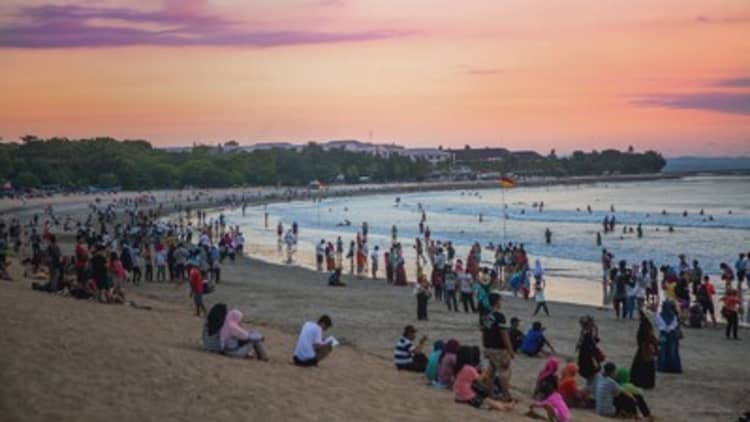Arief Yahya is a man with a mission to make Indonesia a global tourism hot spot.
"We realized everyone in the world knows only Bali, That's why our president challenged me to create another 10 new Bali," Arief told CNBC in November.
In fact, Arief, who is Indonesia's tourism minister, has many ambitious targets. Indonesian President Joko Widodo has been vocal about his aim of attracting 20 million international visitors to his country by 2020. That's roughly twice the number of tourist arrivals since 2015.
To hit that target, the president, popularly known as Jokowi, gave Arief the task of boosting tourism arrivals into the world's fourth-most populous country.
That's not an easy task, considering that the country is still working through challenges of infrastructure and better connectivity.
But Arief, a former chief executive of Indonesia's largest telecommunications firm, accepted the challenge.
The minister told CNBC that Indonesia is projected to receive 16 million by the end of the year.
That may fall short of the target of 20 million, but the number of tourist arrivals has grown by about 20 percent every year since he took office in October 2014.
Arief credited the growth in tourist arrivals to deregulation in the sector. Only 15 countries' citizens could visit Indonesia without a visa in 2015. Today, citizens of 169 countries can enter visa free.
The top item on Arief's agenda, however, is for Indonesia's tourism efforts to "go digital" — which can be seen in his ministry's partnership with regional ride-hailing giant Grab. That's spurred in part by Arief's interest in growing his country's share of millennial tourists. Already, half of all international visitors to Indonesia are from that generation.
"Millennials have their special needs ... they are very digital, so we have to provide them a digital environment," he said, adding that millennials are using social media app Instagram extensively and are looking for cheaper options through the sharing economy.
Already, more than 70 percent of the marketing budget goes to digital players like Expedia, Baidu and Google, he said.
Arief also addressed an issue which has been the subject of much debate on the island of Bali — zero-dollar tours.
Those are all-inclusive vacation packages sold at bargain prices, which many Chinese tourists purchase for their trips Bali.
The island is attracting a significant increase in the number of foreign tourists from China. For the first time last year, Chinese tourists outnumbered Australians as the biggest group of foreign visitors to Bali.
Arief said he found the zero-dollar tours concerning because he believes the tour operators running them are not properly licensed. They would not be able to give such cut-rate discounts, he said, if they were operating according to usual procedures.
As for Chinese tourists in general, Arief said the Chinese were "preferred" customers.
"In terms of size, they're the largest. In terms of growth, they're the largest. In terms of (foreign exchange) receipts, they're the largest," he said, adding that people denigrating Chinese tourists must be "competitors."



